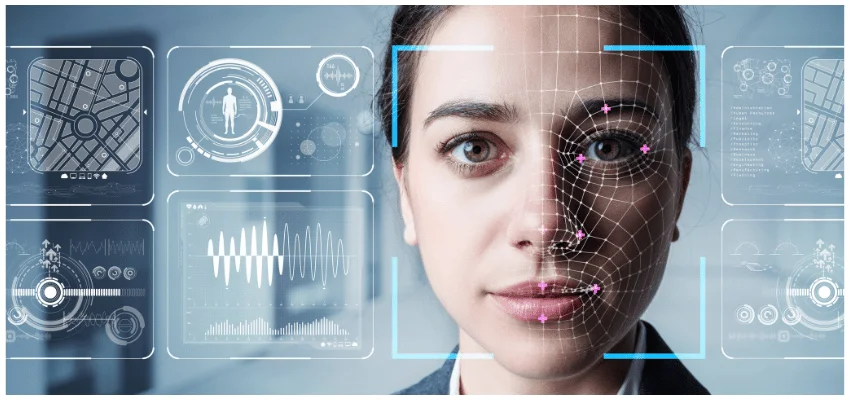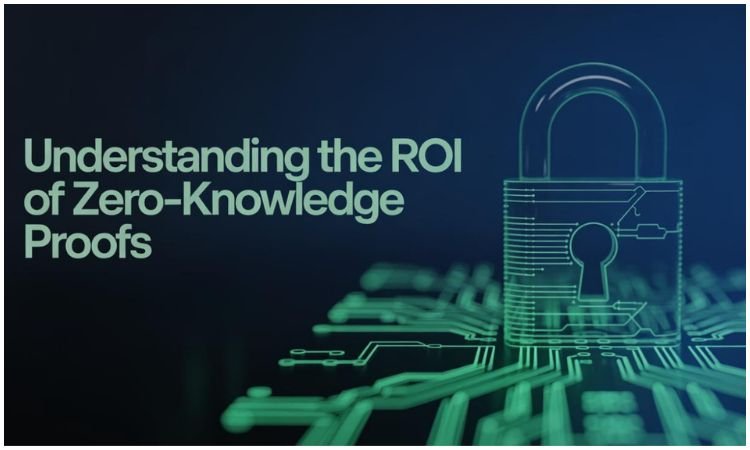
Remember that password you used for your childhood AOL account in the dial-up days? A data breach from 2006 plastered that password all over the internet (don’t worry, we’ve all been there). The fact is, cybersecurity threats are evolving faster than our ability to mitigate them, and traditional authentication methods are leaving our digital lives exposed. But fear not, fellow internet citizens, there’s a new sheriff in town, Zero Knowledge Proof Identity authentication. Buckle up, because we’re about to dive into the future of secure logins.
Traditional authentication methods: Fort Knox with a cardboard door
It’s well known that passwords are unsafe. Phishing, brute-force cracking, and shoulder surfing can bypass them. Because we use the same passwords on many sites, one hack could reveal several accounts. Fingerprints and face recognition provide some security, but they have limitations. Fingerprint scanners may not function for identical twins, and deepfake technology is improving, threatening facial recognition systems.
Two-factor authentication (2FA) needs a second verification step. But it’s not fail-safe. It’s possible to listen in on popular 2FA SMS through SIM swapping. To defend the digital door, we need a better solution than hackable keys. We need a system that doesn’t divulge our passwords, so hackers can’t steal or abuse them. ZKP-based identification promises to make online life safer and more private.
What are zero-knowledge proofs? Imagine a magic password you never reveal

Like cryptographic magicians, ZKPs help here. Imagine entering a high-security club with an uneasy bouncer. Showing your ID on the guest list seems hazardous. Here come the ZKPs. With this technology, you can prove your age to the guard without revealing your birthday. A clever mathematical dance is crucial. Instead of displaying your ID, you and the bouncer answer questions to prove you’re over 21.
Knowing the key unlocks the steps, like a secret handshake. This clever method sends only the relevant information (such as your legal age), safeguarding your birthday. When the bouncer gives in, you enter, and everyone wins except for your privacy. ZKPs are digital cryptographic magic. They allow you to prove your credentials without revealing them to a server or website.
ZKP-Based Authentication: The Fort Knox with a Laser Grid
Let’s examine digital zero-knowledge proofs (ZKPs). The Zero Knowledge Proof Identity authentication lets you verify your login and password without sending them to the server. Since attackers can’t take anything during transmission, this strategy greatly reduces data breaches. The system sends a cryptographic verification of credentials in place of the data.
Advanced cryptography ensures the authenticity and integrity of this evidence. The server can validate this evidence without accessing or storing passwords. This method improves security and reduces the attack surface, making it difficult for fraudsters to intercept or influence authentication.
Decentralized identities strengthen ZKP Based Authentication. Consider decentralized identities to be digital passports that securely store your credentials on a blockchain or similar technology. These identities protect sensitive data by decentralizing storage, preventing attackers from exploiting single points of failure or central databases. Digital authentication using ZKPs and decentralized identities is safe and privacy-preserving, allowing users to validate their identities while keeping control over their personal data.
Key Advantages of ZKP-Based Authentication: Like a bodyguard for your data

ZKP-based authentication hits fraudsters three times, forcing them to discover new methods to abuse our digital lives. So how:
Better Data Protection: ZKPs protect login credentials. Instead of storing users and passwords on servers, ZKPs never divulge them. A hacker won’t get your credentials because zero-knowledge proofs keep them secure.
Reduced Attack Surface: Imagine a large castle with many windows and doorways available to attackers. Similar vulnerabilities exist with usernames, passwords, and other credentials in traditional ZKP Based Authentication techniques. ZKPs alter the terrain. Eliminating the need to retain or transmit this data reduces the castle walls, leaving fewer vulnerable points. This significantly reduces the attack surface, making it more difficult for fraudsters to gain access.
User Privacy and Control: Data on the internet has been one-way for years. Users regularly provide personal information to access services without being aware of its collection or usage. ZKPs let users reclaim control. With this technology, you can finally choose what authentication information to disclose. No more showing your birthday to verify you’re 18! ZKPs let you establish your eligibility without revealing personal information. This gives you more privacy and control online.
Applications and Use Cases: From Banking to Buying Books
Zero-knowledge proof (ZKP)-based verification may revolutionize many aspects of life and is as diverse as the digital world.
Finances: Imagine accessing your bank account without worrying about phony assaults. ZKP-based security allows for the verification of your identity without requiring a login. This reduces the likelihood of unauthorized entry. ZKPs protect your financial data from hackers by allowing you to authenticate your identity without revealing your true information.
The best Guarantee: ZKPs guarantee client privacy when seeing medical information in healthcare. With ZKP-based identification, physicians and nurses may verify patient identities without disclosing private information. Only authorized personnel can view the secret medical records. This respects stringent data security and patient privacy standards.
Online shopping: ZKPs may speed up logins, so you don’t have to keep changing your password. Avoiding several passwords makes online shopping safer and easier. They may easily participate and buy. ZKP-based identification simplifies user life and protects them from identity theft and false transactions.
These are several ZKP-based verification uses. As ZKP technology improves, it is likely to find its application in governance, education, social media, and other industries. ZKPs will transform how people use computers and defend our digital infrastructure from new dangers.
Challenges and Ongoing Developments: No Tech is Perfect

No cybersecurity solution is perfect, including ZKP-based authentication. It provides strong cyberdefense; however, it has drawbacks:
Complexity of computation: Some ZKP procedures are like difficult mathematical puzzles. This computational intensity may strain resource-constrained devices like smartphones and wearables, affecting performance and the user experience. To solve this problem, researchers are inventing lighter protocols to make ZKPs work on more devices.
Scalability: Scaling ZKP systems for large user bases is a difficult task. It takes a strong infrastructure to validate millions of user IDs at once. The good news is that scalability optimization of ZKP protocols is enabling safe authentication in large-scale applications.
User Adoption: Moving from weak passwords to a new system might be difficult. Users may need education and awareness efforts to comprehend ZKP-based authentication’s security benefits. User-friendly interfaces that simplify authentication will also be essential for wider adoption.
However, the cybersecurity community is addressing these issues. Researchers consistently create more efficient and scalable ZKP procedures. Researchers are developing educational and user-friendly interfaces to bridge the gap and boost acceptance. ZKP-based authentication might power a more secure and user-centric digital future with continuous development.
Integration with Existing Frameworks: A Multi-Layered Defense
Zero-knowledge proof (ZKP)-based authentication supplements current security mechanisms. Cybersecurity frameworks should easily incorporate it along with encryption, security assessments, and user training. ZKPs are essential to a multi-layered defensive system, improving digital security and resilience. ZKPs are like castle walls, strengthening defenses and deterring attackers. Using ZKPs in cybersecurity plans helps strengthen infrastructure and reduce the danger of sophisticated cyberattacks.
The future of cybersecurity is bright with ZKP-based authentication. ZKPs provide safe and privacy-preserving authentication, empowering individuals and organizations to manage digital security. ZKP solutions will grow with technology, providing improved security against changing threats. Therefore, we must abandon weak passwords and embrace secure logins. ZKPs provide secure, user-friendly authentication. It is important in a digital environment with cryptography.
Conclusion:
Digital prospects are great, but they also carry hazards. ZKP-based authentication revolutionizes cybersecurity and combats these vulnerabilities. With its focus on data protection, user privacy, and reduced attack surfaces, ZKP technology by yushuexcellence.in empowers users and organizations to navigate the digital landscape with greater confidence.
While challenges remain, ongoing research and development promise to overcome them, paving the way for wider adoption and a more secure future for everyone. As we move forward, let’s embrace ZKP-based authentication not just as a technological advancement but as a step towards a more secure and empowered digital world. Remember, the magic of zero-knowledge proofs should safely lock away the key to your digital life, preventing it from lying around under a virtual doormat.







